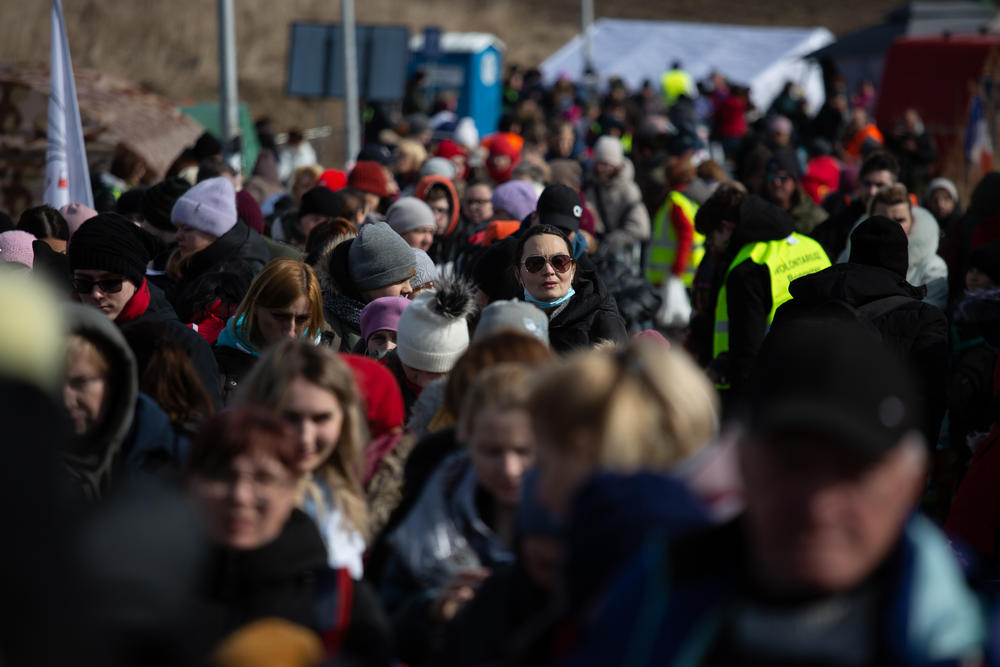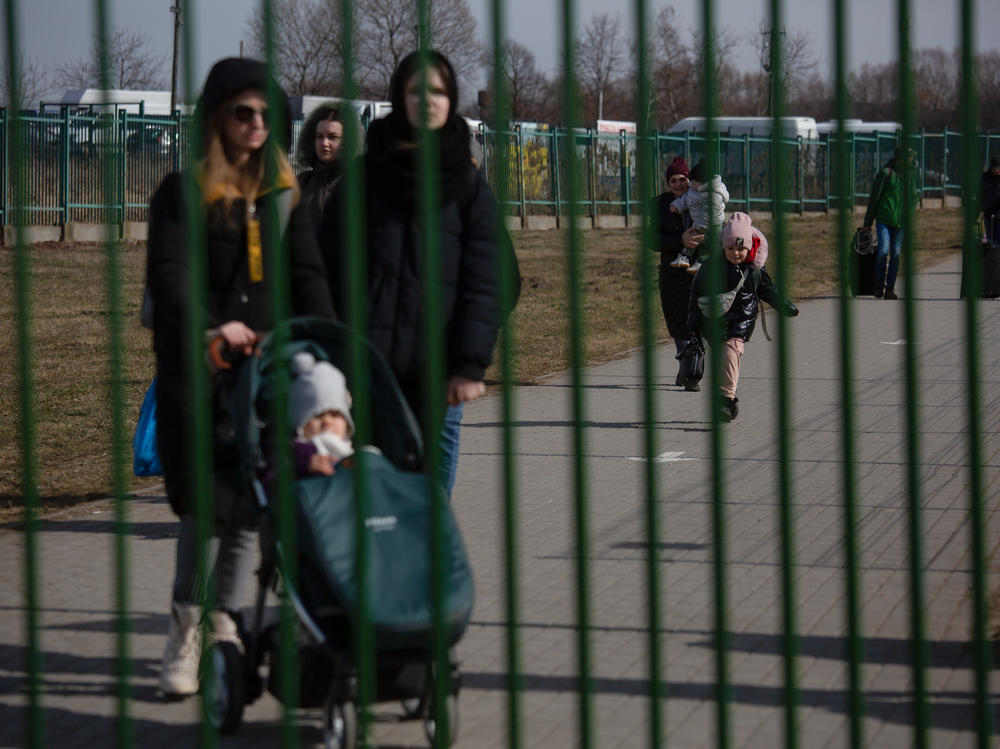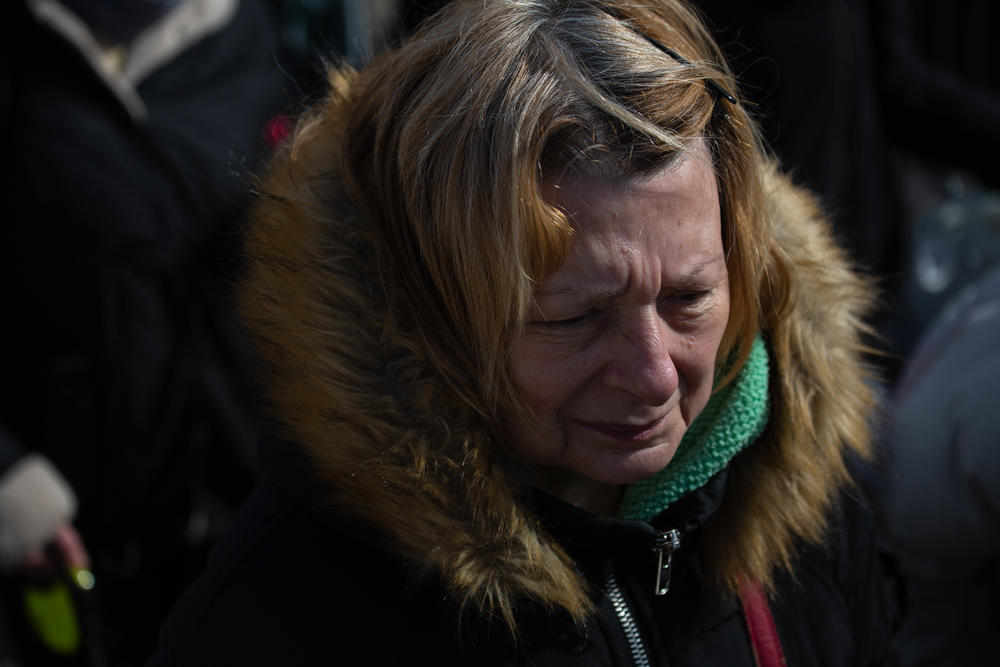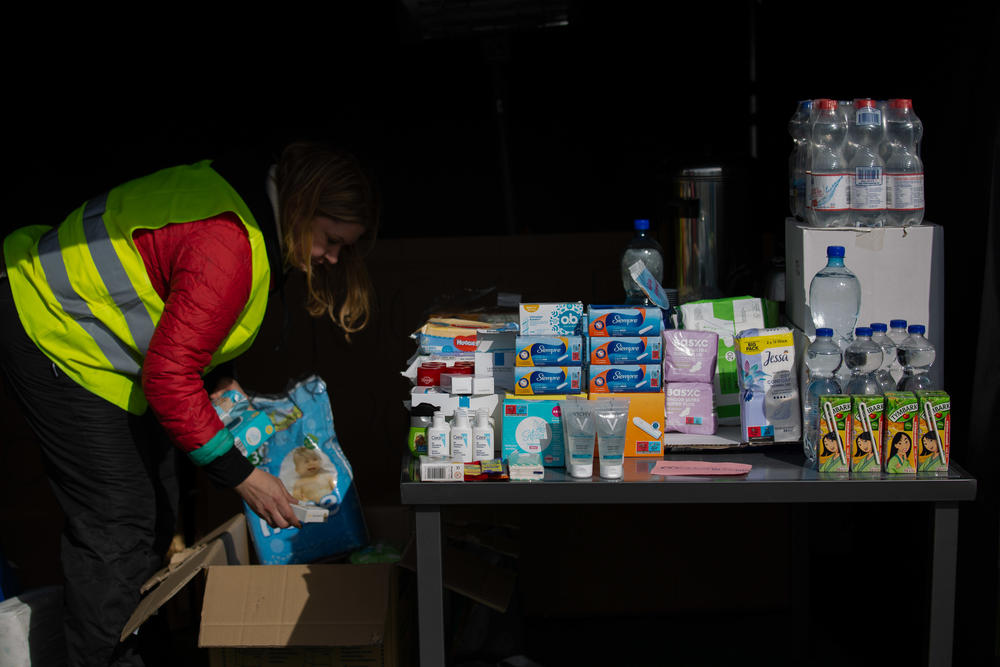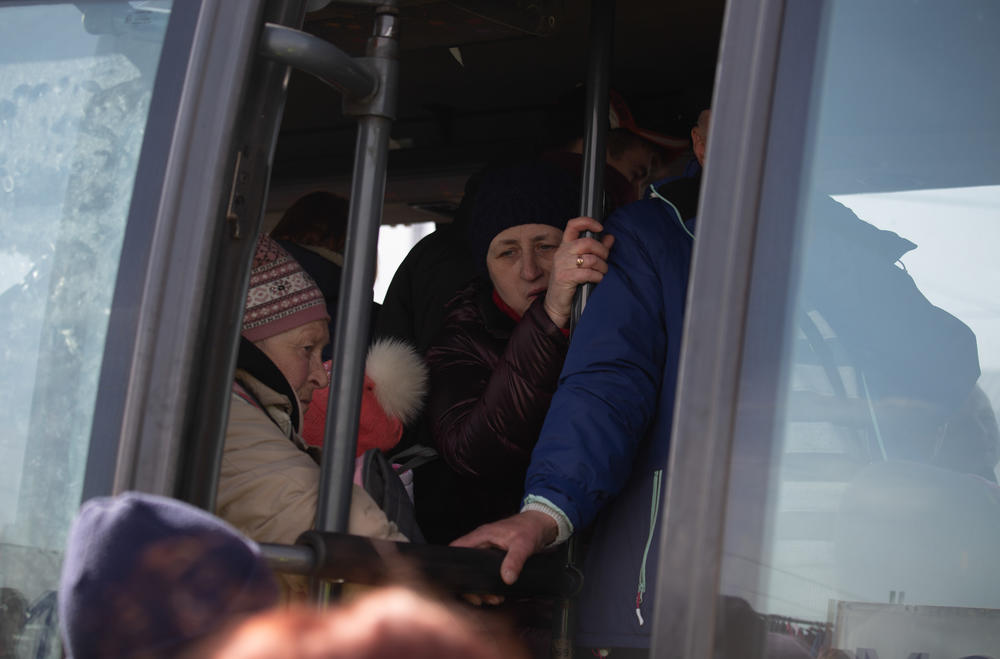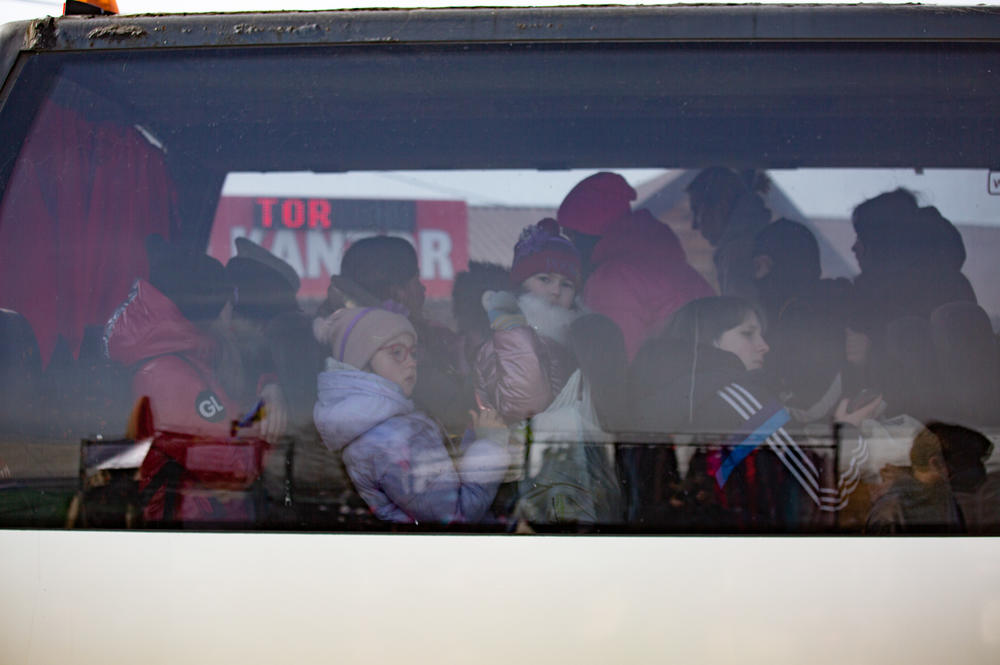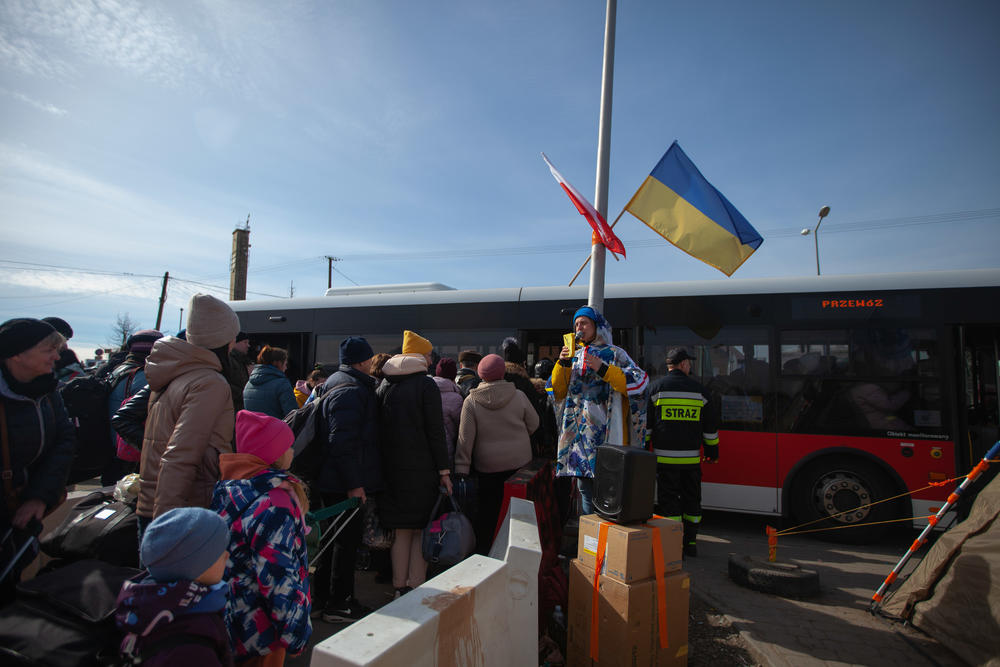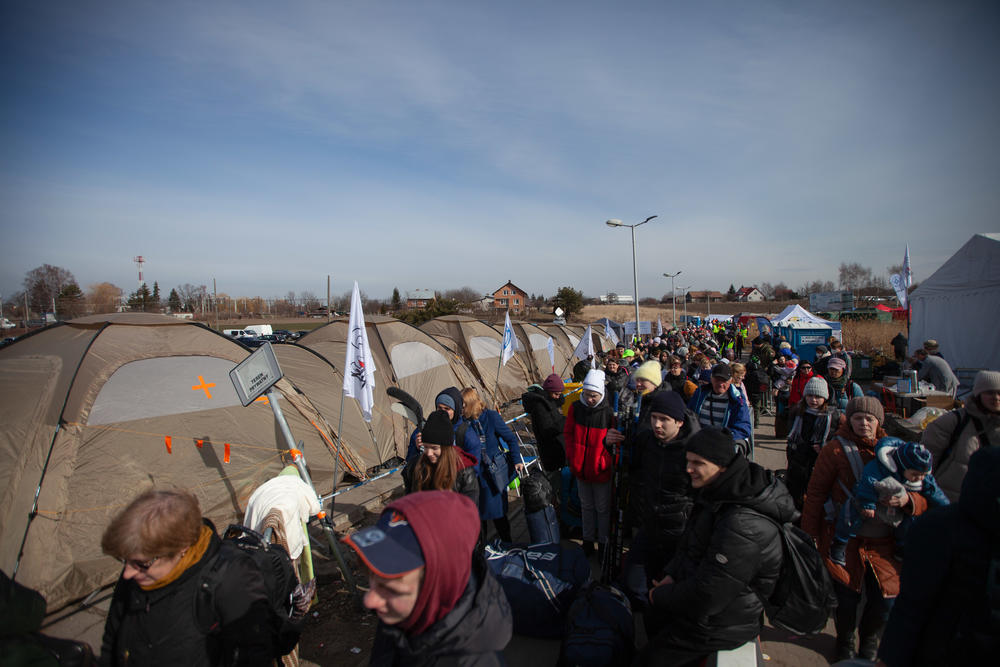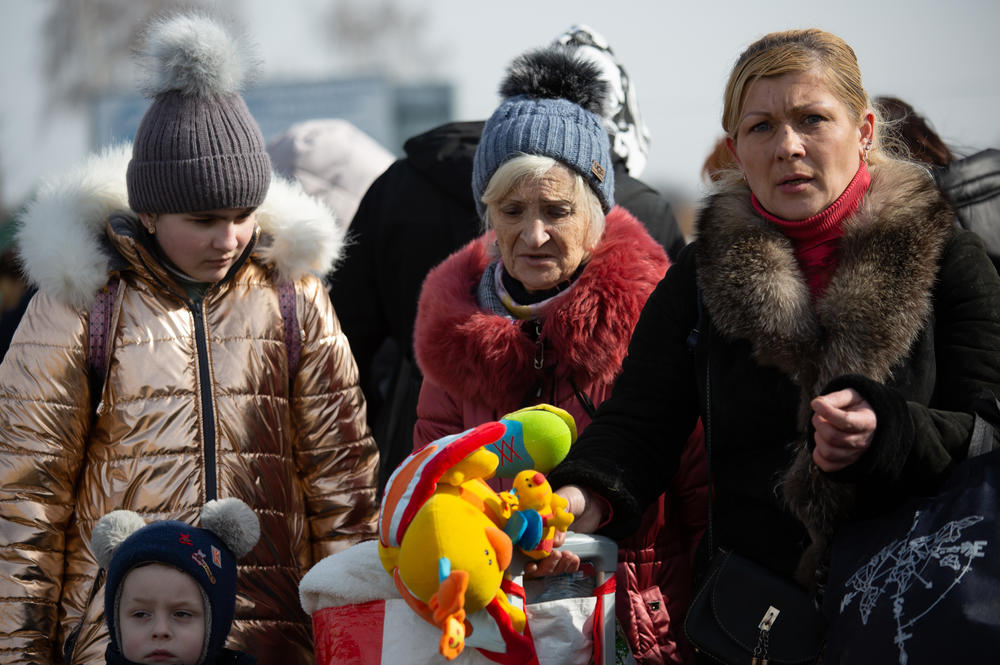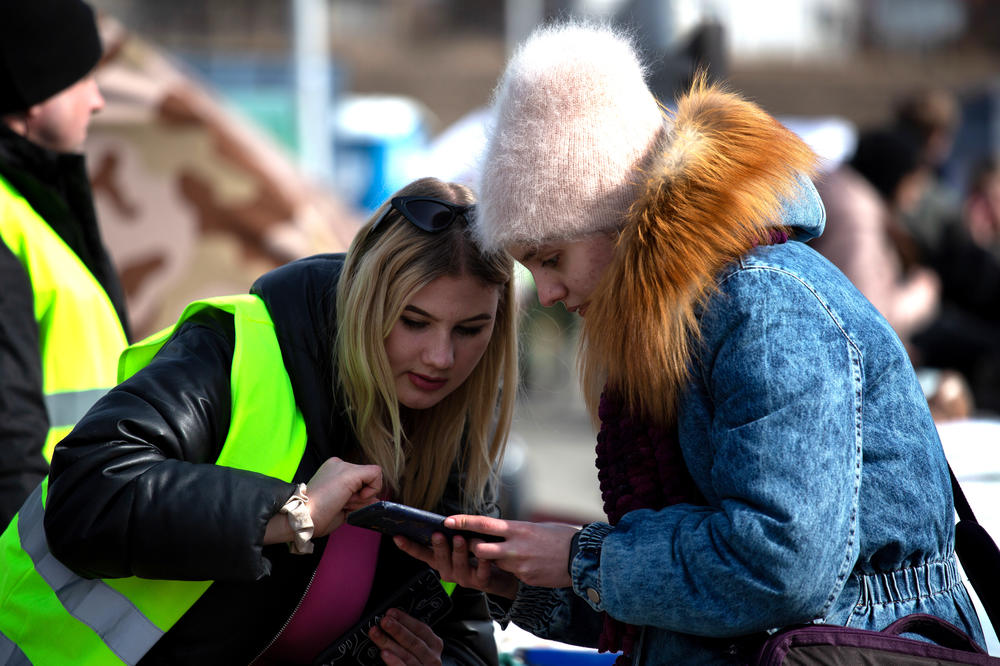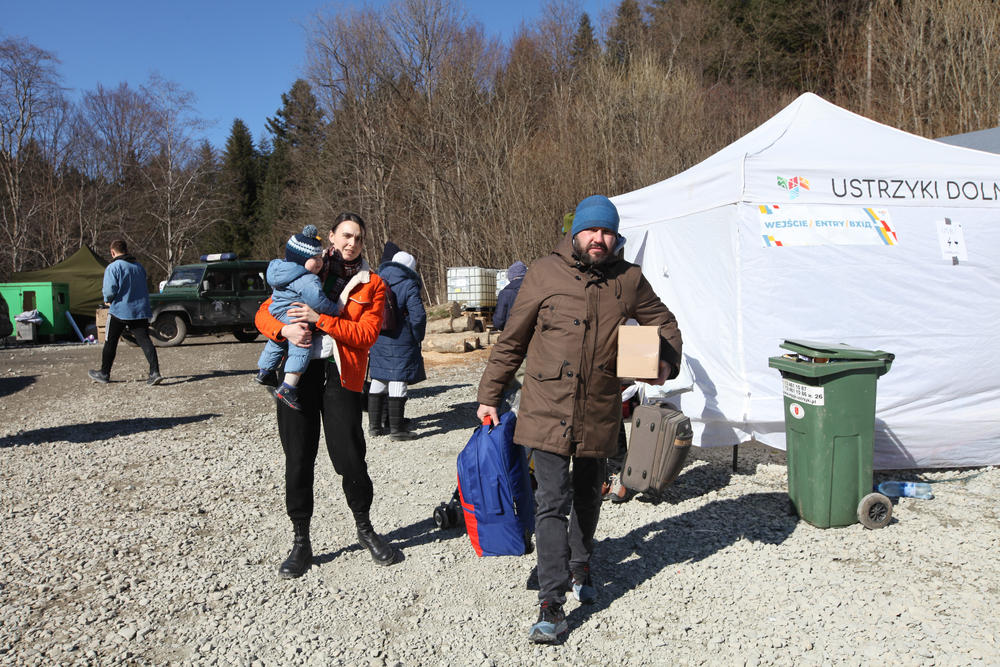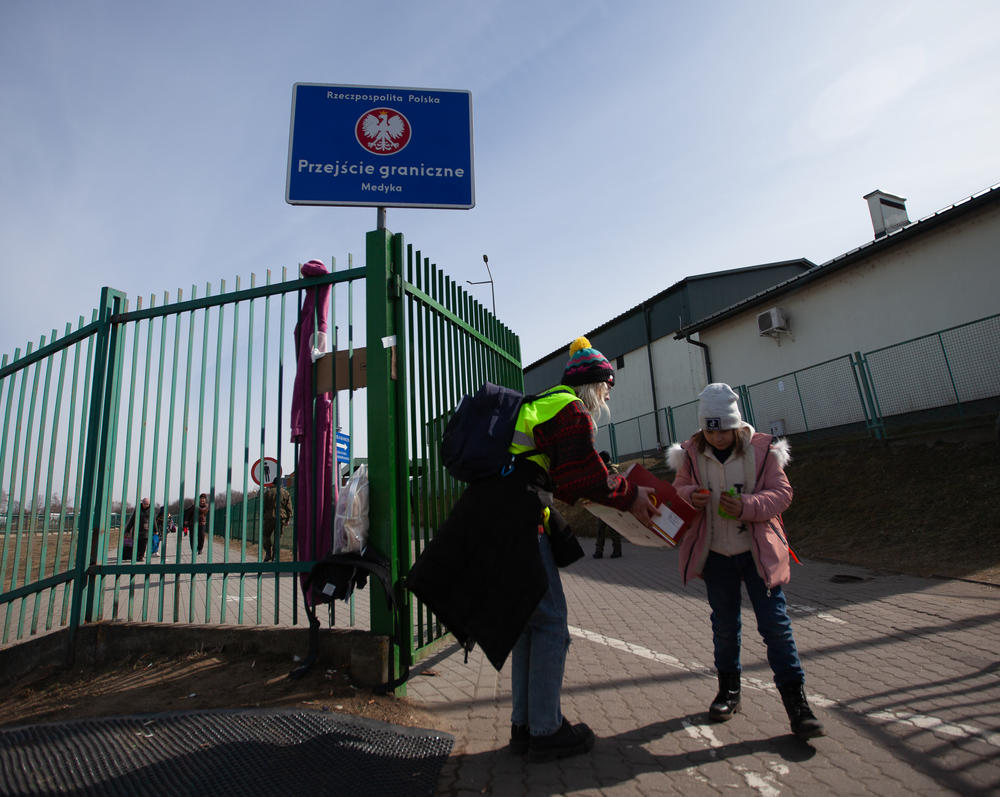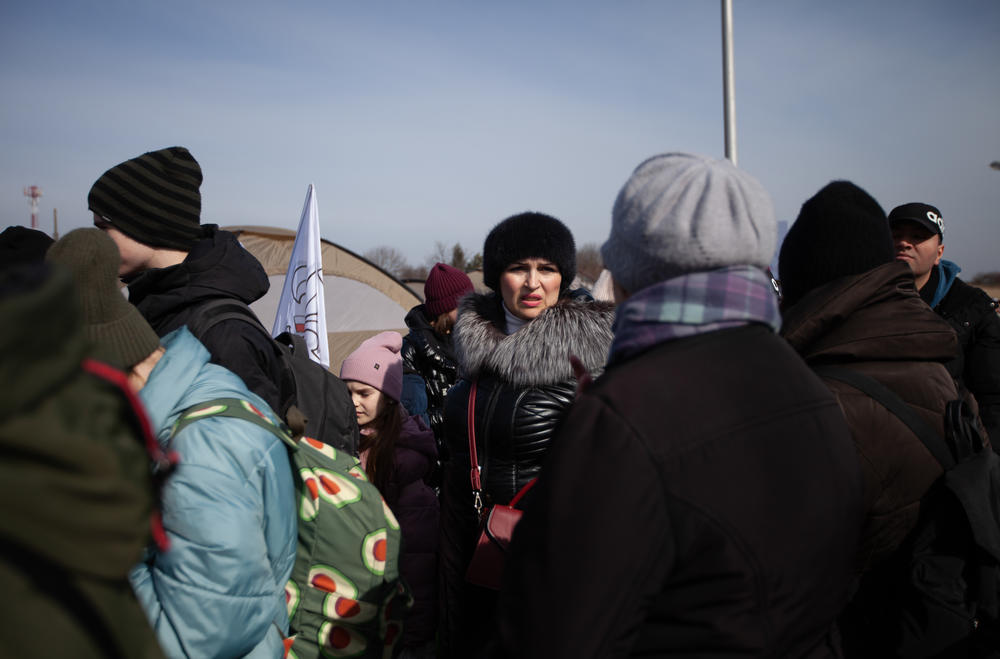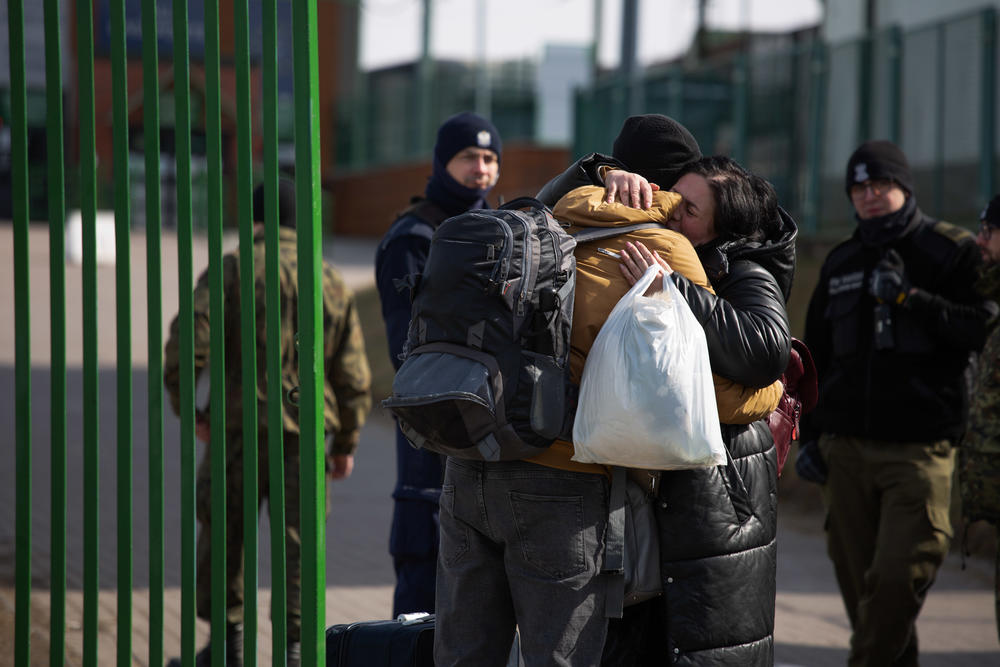Section Branding
Header Content
On the front lines of Poland's makeshift response to the Ukrainian refugee crisis
Primary Content
MEDYKA and KROSCIENKO, Poland — At the border crossing in Medyka, Poland, an exhausted Ukrainian mother carries her toddler over the checkpoint and onto Polish soil.
There, a young man in uniform is waiting to take the child into his arms, while others rush to help.
Thousands of feet have trampled the dead winter grass into mud at the crossing in the weeks since Russia invaded Ukraine. Nearly 3 million people have left Ukraine, and more than half of those have come to Poland.
There is a crush of people in Medyka, some wearing fur coats, carrying pets or babies. And everywhere you turn, someone is offering whatever refugees might need: grilled sausages, COVID tests, veterinary services, food, diapers and medicine.
A long line of Ukrainians in winter coats waits to board buses that will take them to big cities further west and away from war.
Polish volunteer Tom Madry has been driving here every day to help, and right now is unloading palettes of water from the back of a truck.
"There are tons of people trying to help, but it's very difficult to organize in a very structured way," he says. "For example, here is the soup, here is just a fireplace for refugees to warm up, here is just a pile of trash."
"It could be better organized, but I have no idea how to organize it better."
The crossing is a free-for-all of those who came to help. A French man named Lilian Boulard made the 23-hour drive from Bordeaux and is wearing a pirate hate and a flag as a cape while he hands out food to those in need.
One woman, Evgenia, has just crossed from Ukraine with her daughter. She says her husband stayed behind and she doesn't yet know if he will be called to fight.
A few miles up the road, an indoor reception center holds resources for people planning the next leg of their journey. It's an entire ecosystem that sprung up in just two weeks.
It's organized chaos.
At a crossing about an hour's drive south of Medyka, the scene is completely different: peaceful, quiet, calm. This is the small mountain village of Krosciencko, where there is still snow on the ground and helpers outnumber refugees.
Instead of the torrent of refugees found elsewhere, Krosciencko sees just a trickle. And instead of a barrage of volunteers rushing to help, it's a system of aid groups moving in concert.
But the one thing both crossings have in common is the dramatic gender imbalance — the refugees are almost all women and children; Ukrainian men have been barred from leaving the country lest they need to be called on to fight.
Tatiana Szkolna is a grandmother from Kyiv who has just crossed over.
She begins describing the fear of exiting the city while it's under attack by Russian forces when her 14-year-old grandson interjects.
She quickly scolds him for speaking in Russian. "Death to Russia. Death to Putin," she says.
As she dissolves into tears, Szkolna says she cannot forgive the Russian president for what he has done to her country.
A few yards away stands Daria Biestschasna, who illustrates the calm of Kroscienko. She crossed the border from Ukraine two days ago and has come back to help others.
"We do what we can because when we cross the border, we were shocked and didn't understand what to do," she said. "A lot of people don't know Polish or English. In our way, we can help them."
Biestschasna is a high school economics teacher and when she is done volunteering here, she plans to teach her regular class over Zoom.
Some of her students are still in Ukraine while others have evacuated, but they wanted to keep the classes going. Asked whether she is planning to stick to the curriculum or just let the kids process what they're going through, she says: economics.
"I try to explain all the situation in Ukraine, and all the economics laws," she says. "We all understand that we want to build our Ukraine."
At both crossings, a seemingly effective, if varied, emergency relief effort has been stood up almost overnight. But it's meeting immediate needs — it was not built to last.
The challenge Poland now faces is to create a refugee infrastructure that can continue supporting millions of people for a war that may be only just beginning.
Copyright 2022 NPR. To see more, visit https://www.npr.org.
